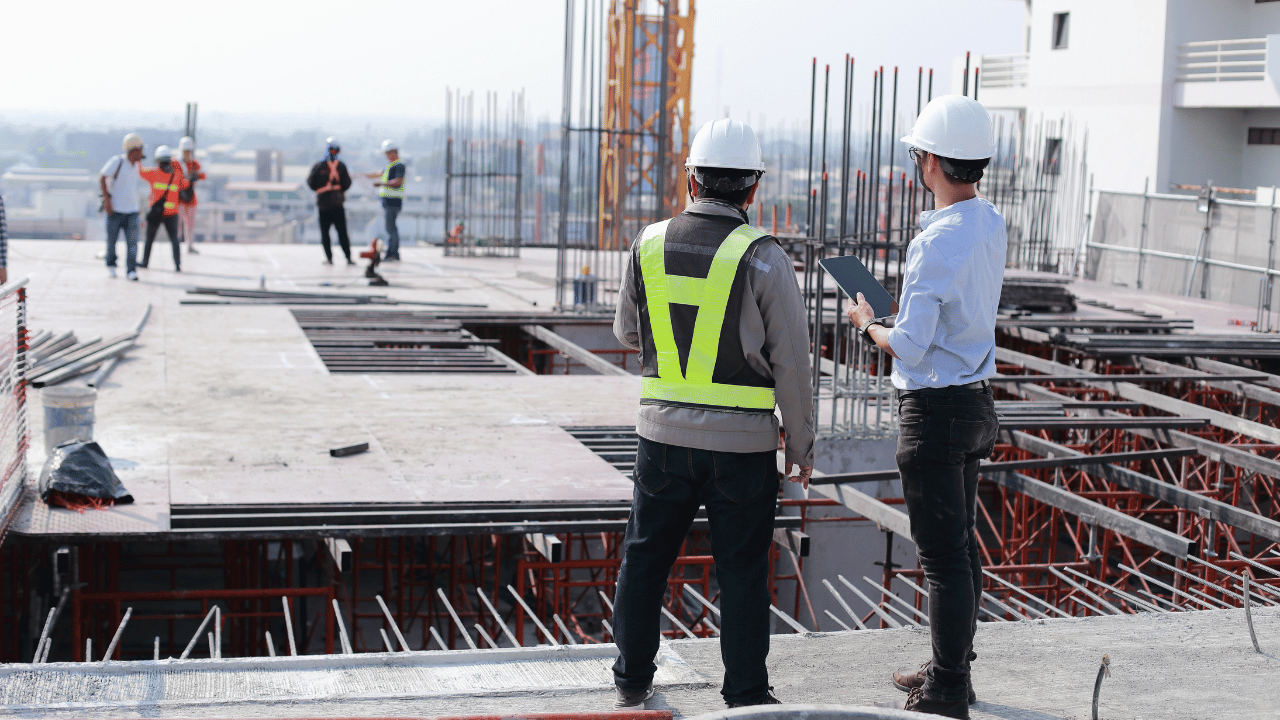
Financial Planning for 40-Year Recertification: Budgeting for Repairs and Inspections
John Souffront

Did you know Florida condo associations must do a detailed reserve study every 10 years? The first reports for existing buildings are due by December 31, 2024. As buildings get older, planning for the 40-year recertification is key. It’s important for budgeting repairs and inspections.
Good budgeting keeps your building safe and its value high. It also makes sure you follow state laws. Without a solid plan, unexpected costs can hurt your association’s finances and resident safety.
In Florida, not funding reserves fully can lead to big penalties. So, understanding financial planning for 40-year recertification is crucial. It helps avoid risks and keeps your property’s value up.
Key Takeaways
- Conduct reserve studies every 10 years to ensure financial preparedness.
- Budgeting for repairs is essential to maintain compliance and safety.
- Failure to fund reserves fully can lead to legal repercussions.
- Regular adjustments to the reserve fund are necessary to address property condition changes.
- Engaging professionals in reserve studies enhances accuracy and compliance.
Understanding the Importance of Financial Planning for 40-Year Recertification
Financial planning is key for 40-year recertification. It helps condominium associations save for repairs and upkeep. This keeps property values high, making everyone happy and reducing risks.
Unexpected costs can stress owners. They might not be ready for sudden expenses or big repairs.
The 40-year mark is also about following the law. It makes sure buildings are safe and meet state rules. This keeps everyone safe and sound.
Good financial planning means knowing what’s needed and what’s not. It helps make smart choices based on money and rules. It’s about planning for the future and meeting community needs.
| Aspect | Implications |
| Legal Compliance | Ensures structures meet state regulations, protecting residents. |
| Property Value Preservation | Fosters community satisfaction and prevents financial strain. |
| Proactive Management | Mitigates risk of surprising assessments through preparedness. |
| Timely Repairs | Addresses potential structural issues before they escalate. |
So, financial planning is crucial for 40-year recertification. It helps associations follow the law and keeps communities strong.
The 40-Year Recertification Process: Key Components
The 40-year recertification process is crucial for keeping buildings safe and sound. In Florida, it requires detailed checks on the building’s structure and electrical systems. The first check happens at 25 years, then every 10 years after that. This ensures buildings meet today’s safety standards.
Mostly, commercial and big residential buildings go through this. It’s all about following the latest safety rules.
The Role of Inspections in the Recertification Process
Inspections are key in the 40-year recertification process. They look at important parts like foundations and walls. This can show if repairs are needed.
Having the right documents ready makes the process smoother. This includes the building’s original plans and past inspection reports.
Common Repairs and Their Cost Implications
Inspections often find common repairs that are vital for a building’s health. These include fixing roofs, strengthening structures, and updating electrical or plumbing systems. Knowing the costs of these repairs is important and you get these from the certified, licensed inspectors who are qualified to carry out this job.
Big repairs can mean big expenses. This might mean using reserve funds or even special assessments for owners. Planning ahead can help avoid financial problems. This is especially true in places where following safety rules is critical, like after the Champlain Towers collapse.
Implementing a Reserve Study for Effective Budgeting
A reserve study is key for property owners to plan for future repairs and maintenance in Florida condos. It looks at both the physical state of buildings and the financial needs for repairs. This helps in budgeting well, making sure there’s enough money for repairs without overburdening owners.
What is a Reserve Study?
A reserve study checks the condition and life left of important parts in condos or homeowners’ groups. It looks at ten key areas, like roofs, plumbing, and electrical systems. Buildings over 30 years old must follow Florida’s rules for reserve studies, thanks to laws like Senate Bill 4-D and Senate Bill 154. These laws require updates every ten years to ensure funds are set aside for repairs.
These updates must include a detailed look at the building’s structure and estimate repair costs. This is vital for making solid plans for repairs.
Legal Requirements for Reserve Studies in Florida
Florida law says all Condo and Cooperative Associations must have a Structural Integrity Reserve Study (SIRS) by December 31, 2024. This is to keep older buildings safe and sound7. The SIRS report outlines what repairs are needed and how to fund them for up to 30 years. Not following these rules can lead to big fines and higher costs for associations.
| Component | Details |
| Roofing | Regular inspections to assess lifespan and replacement needs. |
| Plumbing | Evaluation of pipe conditions and expected maintenance costs. |
| Electrical Systems | Comprehensive review of wiring and safety compliance. |
| Fire Protection | Assessment of existing systems to ensure safety standards. |
| Load-Bearing Walls | Critical inspection for structural integrity. |
| General Maintenance Fund | Provision for annual contributions towards future repairs. |
Understanding and using a reserve study is crucial. It keeps financial planning strong, follows Florida’s laws, and prepares for future maintenance needs.
Strategies for Budgeting for Repairs and Inspections
Creating a maintenance reserve fund is key for budgeting for repairs and inspections. This fund helps cover big repair costs as they come up. It keeps your finances stable, especially with new laws in Monroe County.
Establishing a Maintenance Reserve Fund
A maintenance reserve fund helps manage future costs well. It’s based on a detailed study of your building’s needs. Regularly adding to this fund is part of good budgeting.
By planning for repairs, you follow the law and keep your property in good shape. Studies show this boosts your property’s value and appeal.
Regular Funding Contributions: Best Practices
Good budgeting means regular funding for your reserve fund. It’s important to update your reserve study often. This keeps your fund growing steadily.
By sticking to this plan, you avoid big financial surprises. It keeps everyone informed about your property’s finances.
| Budgeting Strategy | Best Practice | Outcome |
| Regular Reserve Fund Contributions | Annual reviews of financial needs | Increased financial stability |
| Adjusting Based on Reserve Studies | Updating repair cost estimates | Preparedness for future expenses |
| Legal Compliance Monitoring | Conducting necessary inspections | Enhanced property value |
This method keeps your property in top shape. It also builds trust in your community’s safety and financial management.
Preparing for Future Expenses and Financial Stability
It’s key to plan for future costs to keep your finances stable. Regularly checking your financial plans helps match your budget with upcoming expenses. This ensures your reserve funds are enough and your strategies stay up-to-date with property changes and market shifts.
Regular Review of Financial Plans
Checking your financial plans often is crucial for your financial health. You can calculate your net worth by subtracting what you owe from what you own. Try to have a positive net worth and grow it each year for financial stability and goal achievement. Also, review your reserve funds’ performance and adjust them as needed.
Communicating with Stakeholders About Financial Needs
Talking openly with others about your financial needs builds trust and transparency. Property managers should share updates on budgets, reserve funds, and any needed fee hikes. Being open about financial matters helps everyone agree on decisions and stay informed. Regular talks can lead to changes that support long-term financial health.
Conclusion
Strategic financial planning is key for 40-year recertification. It helps manage repair and inspection budgets. Following legal rules and knowing the value of reserve studies is crucial.
By sticking to new laws like Senate Bill 4-D, you keep your property safe and its value high. This is vital for your property’s structure and worth.
Good communication with everyone involved is also important. It builds trust and helps your community’s finances stay strong. Remember, incidents like the Champlain Towers South collapse show why inspections and upkeep are essential.
This planning is more than just fixing things now. It’s about making your community safer and stronger for the future. And if you’re looking for some expert advice on your property’s 40 year recertification planning, feel free to fill out a small form here or directly call us at 1-800-903-8805. The initial consultation is on us.
FAQ
What is the purpose of the 40-year recertification process?
The 40-year recertification process checks if buildings are safe and sound. It’s especially important for older buildings.
How often are inspections required for 40-year recertification in Florida?
In Florida, buildings are first checked at 25 years. Then, they’re checked every 10 years after that.
What types of repairs are commonly needed during the recertification process?
Repairs can include fixing roofs, strengthening structures, and updating electrical or plumbing systems. These depend on what the inspections find.
Why is financial planning important for 40-year recertification?
Good financial planning helps associations plan for repairs. It keeps property values up, avoids surprise costs, and follows state rules.
What is a reserve study, and why is it required?
A reserve study looks at future repair needs. In Florida, it’s needed under SB 4-D to keep finances stable for condos and HOAs.
How can associations prepare for potential repair costs in the future?
Associations can set up a maintenance fund and regularly check their financial plans. This helps them get ready for future costs.
What best practices should be followed for funding contributions?
It’s best to keep an eye on the reserve study and adjust contributions as needed. Also, make sure to contribute regularly to the fund.
How can property managers effectively communicate financial needs to stakeholders?
Property managers should clearly share updates on budgets, reserve funds, and any fee changes. This builds trust and helps everyone agree on money matters.
John Souffront
John Souffront is a seasoned leader in the construction and engineering industry, with over a decade of experience at the helm of Souffront Construction & Engineering. Known for his unwavering commitment to excellence and innovation, John has propelled his firm to the forefront of the field, delivering cutting-edge solutions for complex projects around the country.
Build Your Project
Ensure safety and compliance on your construction site with our experienced team. Call us today.
Contact Us

